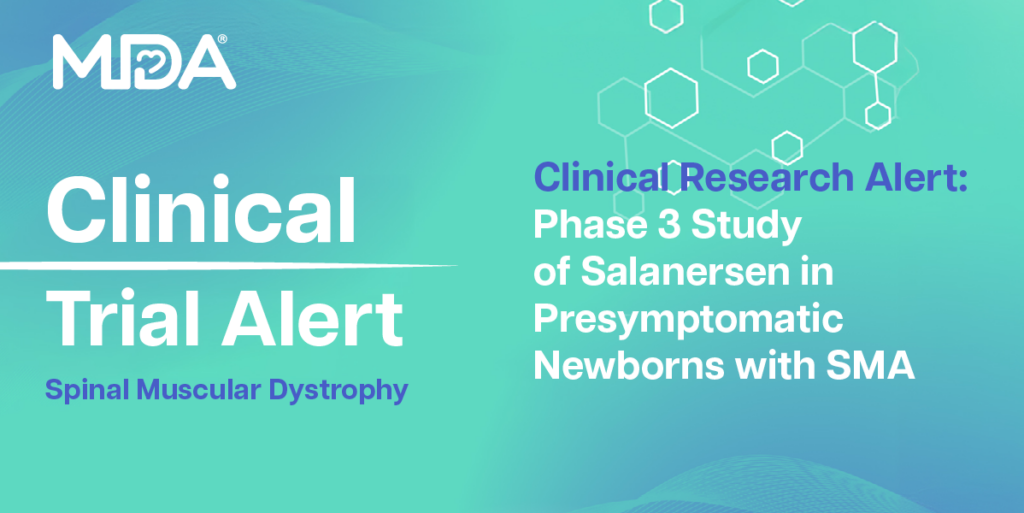
The Search for ALS Treatments Continues
By MDA Staff | Wednesday, May 12, 2021
May is Amyotrophic Lateral Sclerosis (ALS) Awareness Month, and while this past year was different — given the global pandemic we all endured — the research and support for finding new treatments never stopped.
ALS is a neurodegenerative disease of the motor neurons that eventually causes muscular atrophy, paralysis, and death. The cause of ALS is understood in the 5% to 10% of people who have an inherited form of the disease, but there are other forms of ALS for which there is no known cause.
While the US Food and Drug Administration (FDA) has approved only two therapies for ALS, today there are more than 30 potential treatments at various stages of clinical trials, according to Jonathan Sabbagh, PhD, MDA’s Scientific Portfolio Director.
“Right now, there are many different approaches and mechanisms that are being explored for a way to slow or even halt disease progression,” Dr. Sabbagh says. “And I think there’s definitely hope that some of these newer treatments will have an effect.”
Promising trials
MDA is supporting two trials that hold promise.
The first is a phase 2 trial led by Stanley H. Appel, MD, co-director of the Houston Methodist Neurological Institute. This trial isolates patient cells called regulatory T-lymphocytes (Tregs) from their own body, expands the cell population, and then infuses the Tregs back into the patient. Levels of Tregs are reduced in ALS, and this replacement therapy should help boost immune function. A small pharmaceutical company called Coya Therapeutics recently picked up the technology and will help drive the trial forward.
“While it’s still early and they’ve only been able to treat a handful of patients, there is a lot of excitement surrounding this trial, with results thus far showing incredible potential to boost immune function and hopefully slow disease progression,” Dr. Sabbagh says.
The second trial is an ALS platform trial that Massachusetts General Hospital recently initiated. A platform trial is designed to find the best treatment for a disease by testing multiple treatments at the same time and analyzing the results. “This is an exciting approach because they’re able to evaluate several different drugs simultaneously, with four currently being tested,” Dr. Sabbagh says. “These four drugs span a variety of mechanisms, and hopefully at least one will provide promising enough results to advance to a phase 3 trial.”
A platform trial can be more cost-effective and faster than typical clinical trials that evaluate one drug at a time. “If these treatments don’t work, they can rapidly move to another drug in the pipeline that is already queued up and ready to go,” he says. “The platform trial approach will also require fewer patients to be on placebo compared to a normal trial.”
The right direction
While Dr. Sabbagh cautions that there is more work to be done, he believes ALS researchers are heading in the right direction, and there is hope for the future.
“There are so many different treatments in late-stage clinical trials right now, and a lot of different approaches are being evaluated,” he says. “I expect that at least one of these approaches will bear fruit — perhaps not immediately, but with an approach that can be subsequently modified and refined. Hopefully, in the next few years, we’ll have better treatments that can modify the disease.”
Experts Weigh In
Watch the May 2021 Facebook Live ALS Care & Research Updates, featuring Matthew B. Harms, MD, of Columbia University, and Sabrina Paganoni, MD, PhD, of Massachusetts General Hospital, to learn about current clinical trials and more ALS updates.
Disclaimer: No content on this site should ever be used as a substitute for direct medical advice from your doctor or other qualified clinician.




